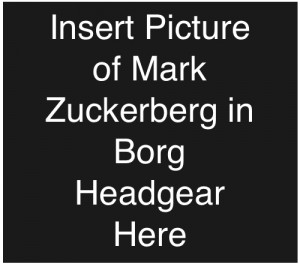Is Facebook the New Local Borg?
Methinks Greg Sterling has been spending too much time with SEO types as of late because his latest post on how Facebook’s Like Buttons could put Facebook on a collision course with the big players in local search sounds like a paranoid screed that I might have penned. In other words, I dig what he is saying:
The potential “dark side” of all this is the fact that all the data that emerges from all the Like button clicking will be in Facebook’s hands. Other third parties in the network will be able to access some of that data with permission but no single party in the “Open Graph” ecosystem being created will have the entire data set — except Facebook.
In other words, “You and your friends will be assimilated”:
All the local publishers in North America and Europe implement Social Plug-ins, etc. Millions upon millions of businesses are “Liked.” That creates a master data set in the aggregate. Facebook will know:
* The favorite sushi restaurants in every city
* The favorite contractors
* The favorite attorneys
* The favorite . . . in every category
And in the comments Will Scott fails to mince words:
If you’re a search marketer and you look at the demographic data you’re a sucker if you’re not already thinking of Facebook as another local channel. As I’ve said many times, if Facebook were a country it would be the 3rd largest in the world (ahead of the US).
One of the big challenges with Greg’s scenario is that to successfully implement this strategy, Facebook would have to figure out a way to match Citysearch’s vote for Joe’s Pizza with Yelp’s vote for Joe’s Pizza. I think the term for this one would be to “normalize” the data. While Facebook could license Localeze, Acxiom & InfoUSA to try to match up the data from different sources, this would be tricky. And I am not so sure that Facebook wants to be the golden record for every data type. Why stop with businesses? What about movies, books, games, lawn mowers, snuggies, and sex offenders from the Vatican?
Sounds like boiling the ocean, but then again local is a bit special, isn’t it?
